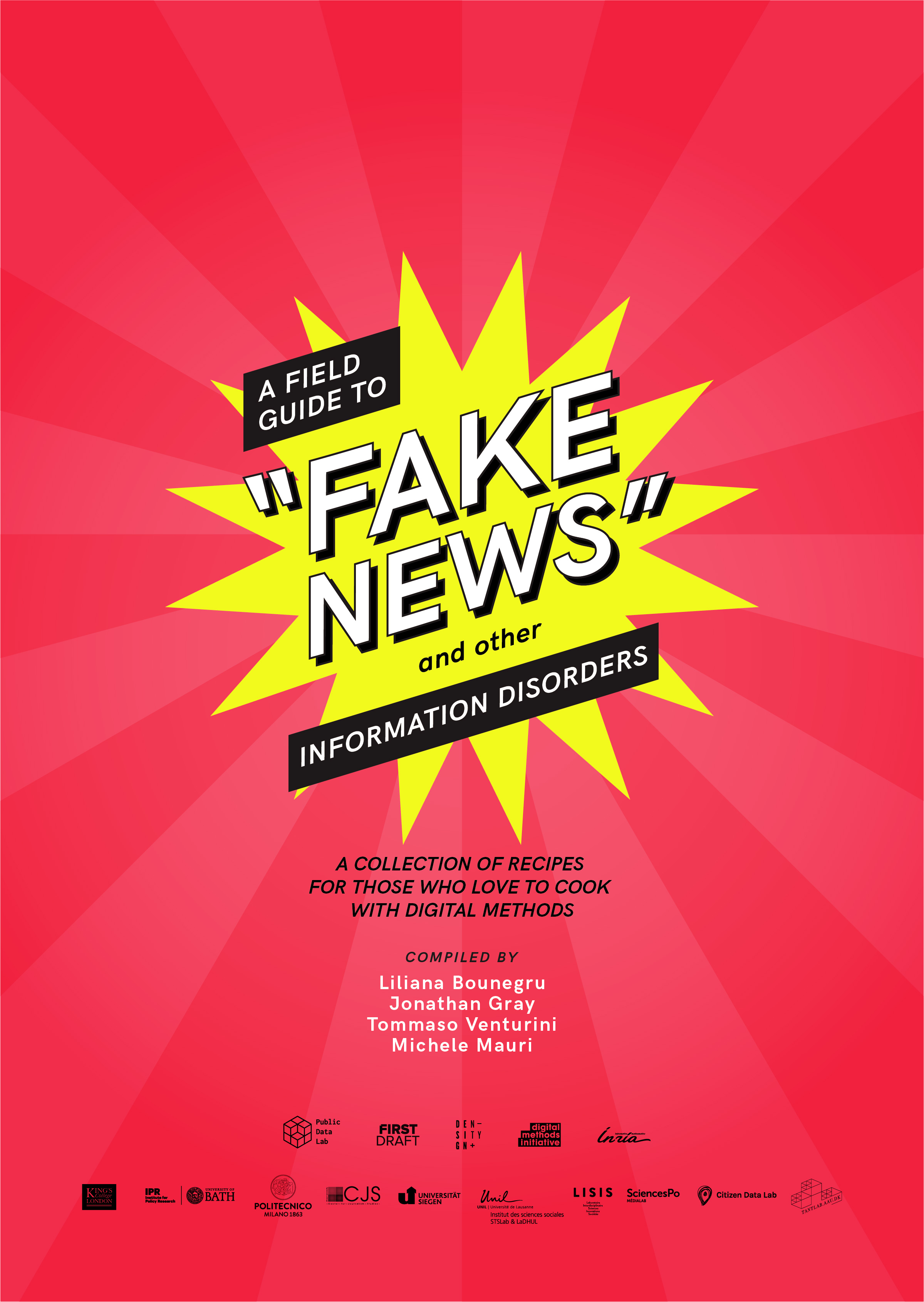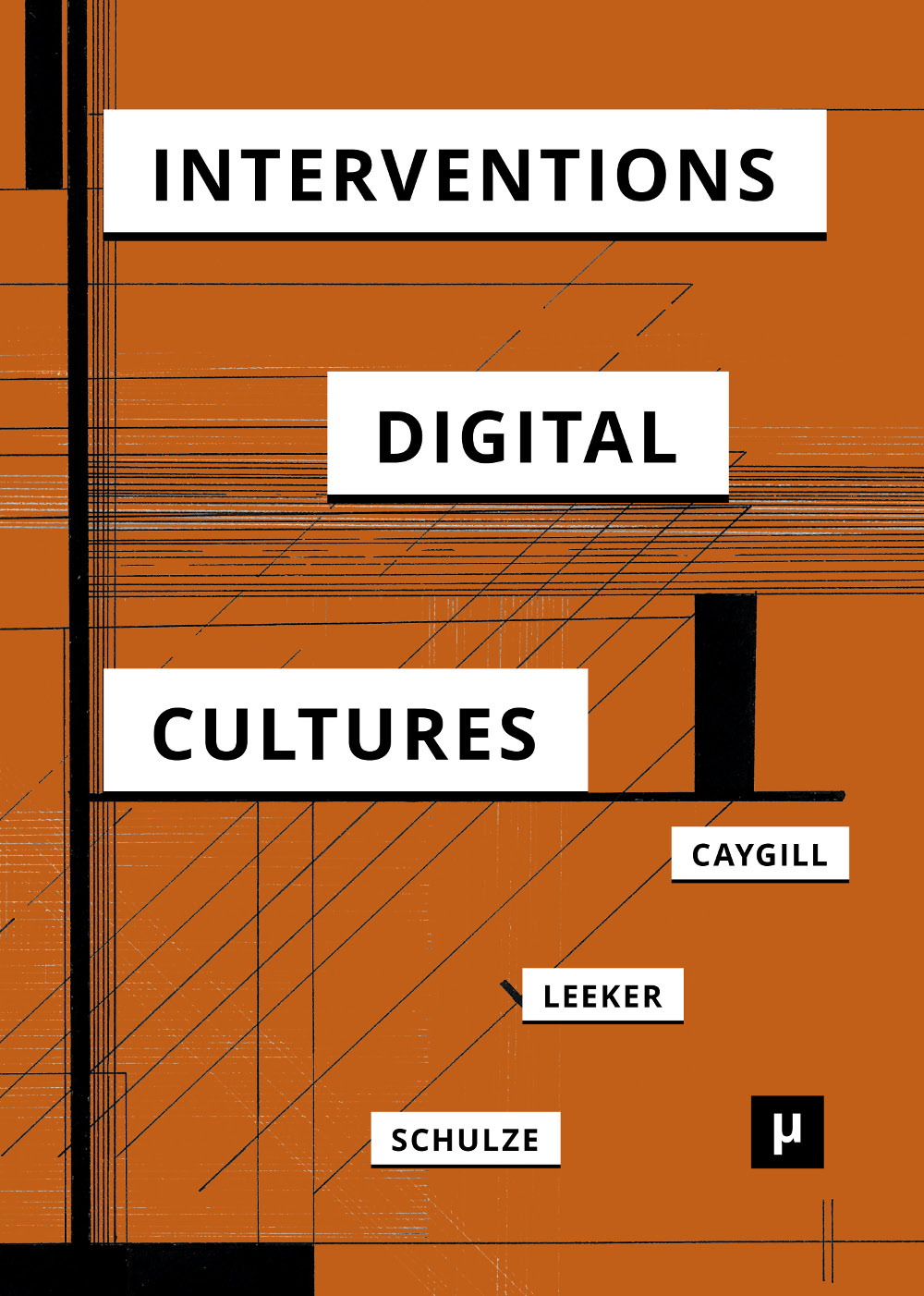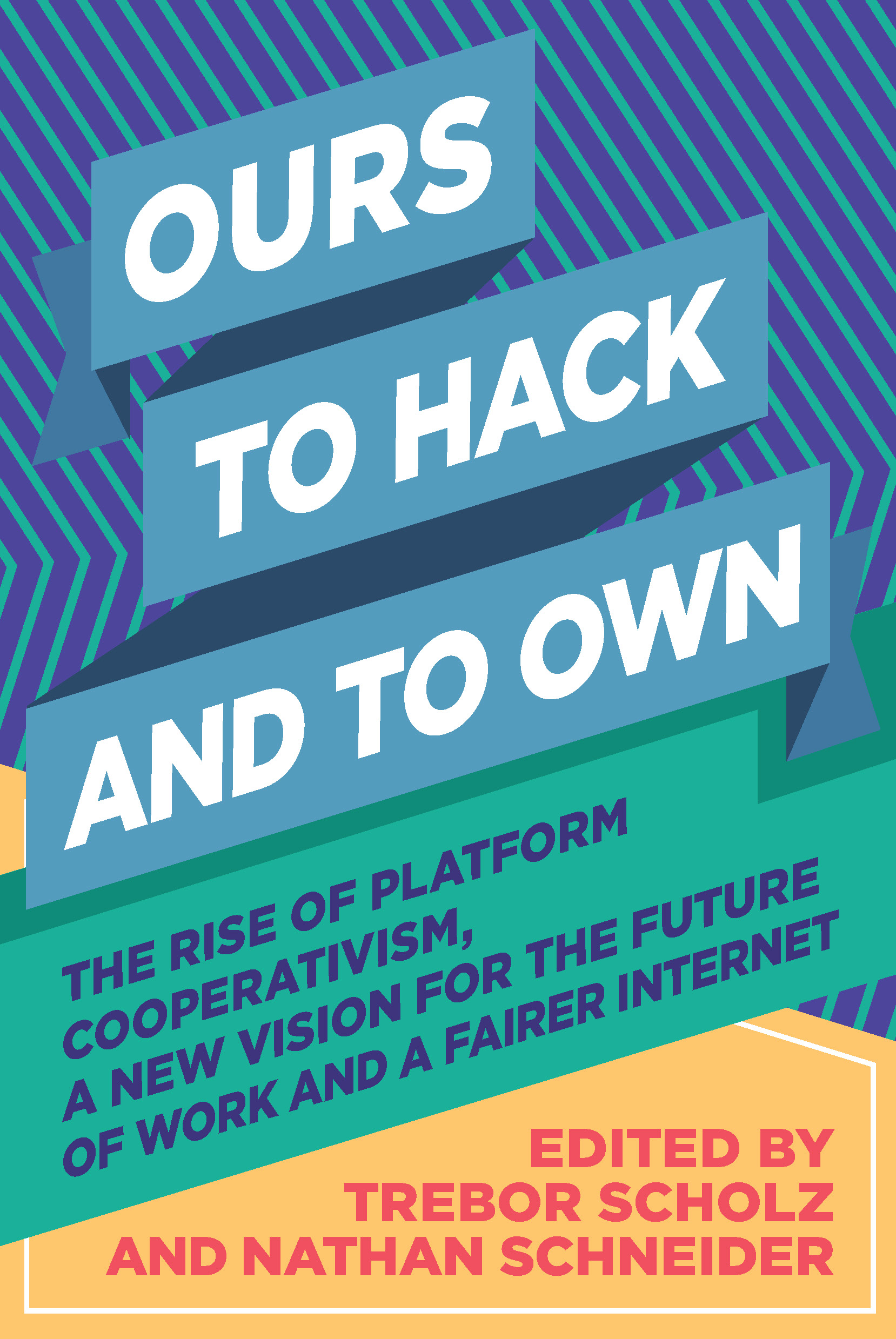A Field Guide to “Fake News” and Other Information Disorders (2018)
Filed under book | Tags: · deception, fake news, internet, journalism, media, memes, politics, social media, trolling, truth, web

“This guide explores the use of digital methods to study false viral news, political memes, trolling practices and their social life online.
It responds to an increasing demand for understanding the interplay between digital platforms, misleading information, propaganda and viral content practices, and their influence on politics and public life in democratic societies.”
Compiled by Liliana Bounegru, Jonathan Gray, Tommaso Venturini, and Michele Mauri
Publisher Public Data Lab, January 2018
Creative Commons BY 4.0 License
211 pages
Interventions in Digital Cultures: Technology, the Political, Methods (2017)
Filed under book | Tags: · digital culture, internet, media activism, performance, politics, resistance

“How to intervene? Interventions are in vogue in digital cultures as forms of critique or political actions into public spheres. By engaging in social, political, and economic contexts, interventions attempt to interrupt and change situations—often with artistic means. This volume maps methods of interventions under the specific conditions of the digital. How are interventions shaped by these conditions? And how can they contribute to altering them? In essays and interviews, this book interrogates modes of intervening in and through art, infrastructures, techno-ecological environments, bio-technology, and political protests to highlight their potentials as well as their ambivalences.”
With contributions by Martina Leeker, Fred Turner, Howard Caygill, Alexander R. Galloway, Wendy Hui Kyong Chun, Ulrike Bergermann, Steve Kurtz, Kat Jungnickel, and Tobias Schulze.
Edited by Howard Caygill, Martina Leeker, and Tobias Schulze
Publisher meson press, Lüneburg, 2017
Digital Cultures series
Creative Commons BY-SA 4.0 License
ISBN 9783957961105, 3957961106
148 pages
Trebor Scholz, Nathan Schneider (eds.): Ours to Hack and to Own: The Rise of Platform Cooperativism (2016)
Filed under book | Tags: · democracy, economics, internet, platform cooperativism

“Real democracy and the Internet are not mutually exclusive.
Here, for the first time in one volume, are some of the most cogent thinkers and doers on the subject of the cooptation of the Internet, and how we can resist and reverse the process. The activists who have put together Ours to Hack and to Own argue for a new kind of online economy: platform cooperativism, which combines the rich heritage of cooperatives with the promise of 21st-century technologies, free from monopoly, exploitation, and surveillance.
The on-demand economy is reversing the rights and protections workers fought for centuries to win. Ordinary Internet users, meanwhile, retain little control over their personal data. While promising to be the great equalizers, online platforms have often exacerbated social inequalities. Can the Internet be owned and governed differently? What if Uber drivers set up their own platform, or if a city’s residents controlled their own version of Airbnb? This book shows that another kind of Internet is possible—and that, in a new generation of online platforms, it is already taking shape.”
With contributions from Michel Bauwens, Yochai Benkler, Francesca Bria, Susie Cagle, Miriam Cherry, Ra Criscitiello, John Duda, Marina Gorbis, Karen Gregory, Seda Gürses, Steven Hill, Dmytri Kleiner, Vasilis Kostakis, Brendan Martin, Micky Metts, Kristy Milland, Mayo Fuster Morell, Jessica Gordon Nembhard, Rachel O’Dwyer, Janelle Orsi, Michael Peck, Carmen Rojas, Douglas Rushkoff, Saskia Sassen, Juliet Schor, Palak Shah, Tom Slee, Danny Spitzberg, Arun Sundararajan, Astra Taylor, Cameron Tonkinwise, McKenzie Wark, and Caroline Woolard.
Publisher O/R Books, New York, 2016
ISBN 9781682190623, 1682190625
251 pages
via Memory of the World

